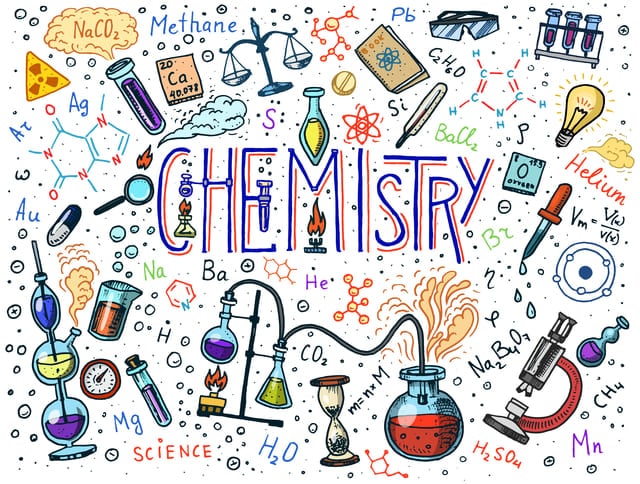For most students, chemistry is a nightmare. It has formulas, rules, complex graphics, mathematics, and experiments… all the things that can make you a chemistry hater. But with the right approach, and some useful tips you can make your life easier, not just with chemistry, but with your study in general. A lot of this advice can be used in many other fields and improve your abilities and comprehension of the subjects.
Here are 7 ways chemistry tuition can improve your grades:
1. Learn with understanding
Chemistry is, as you know, a natural science. When it comes to natural sciences, such as mathematics, physics, biology and others there’s very little room for subpar learning. (Having some biology tuition might help though!) You can’t possibly memorize all those formulas and rules and keep them in your head. You can? Alright, but where will that lead you? All of those things you’ve memorized can’t just be repeated and stand for themselves. You have to do something with them, and there’s no way to do that if you don’t fully understand the topic you’re learning and how to use it when it comes to experiments or tests. The key to studying all natural sciences is to study them with meaning and try to fully understand the laws and the formulas by being able to see how were they made in the first place.

Of course, this doesn’t mean you don’t have to actually study and memorize a thing or two, but the main point is to be able to conclude things by yourself as if you’ve just made the formula yourself. Also, one more important thing is pattern recognition. If you’re able to see the pattern in certain cases or examples, and if you understand the pattern, it will be much easier for you to think of a formula or a law needed, because you can just repeat the pattern and find the right answer. Here you can discuss your chemistry-related problems.
2. Keep notes
In almost all other fields, besides chemistry, you should take notes in classes to be able to study later. When it comes to chemistry, as we mentioned before, you can’t possibly take notes on everything the teacher says. Even if you do, it won’t lead you anywhere.
Also Read —->> O level chemistry tuition
The important thing about taking notes is not trying to figure them out as you’re writing them down. Just try to track everything that’s relevant, and if you’re unclear about something you can ask the teacher later. When it comes to chemistry, you will obviously have to take notes of the many formulas you see and hear, the same goes for physics for example. But as mentioned before, if you recognize the pattern, you’re halfway there. That’s the beauty of the natural sciences, you don’t have to take notes of absolutely everything, but if you’re paying attention in class, those notes can be most helpful when you’re studying later. In other fields where you have subpar learning, it’s easier just to record the teacher’s voice. Chemistry is showing you how to truly pay attention in class because your notes are useless without paying attention. On the other hand, paying attention is also useless if you don’t write stuff down, and as you probably expect the same goes for all natural sciences.
3. Physical learning
If you really want to understand a certain piece of chemistry, or any other natural science, puzzle, there is some great news! You can create the pieces yourself. Let’s say that you want to learn more about molecules, gravity, or geometry. Well, you can visualize all that, at your school or at home. You can create models; you can perform small experiments, to show yourself that those things that you’re studying are actually all around you. You can touch them, feel them, and smell them.
You’ve read in your book that brimstone has a specific smell. Just light a match and you can smell it. You’ve read about gravity, drop something and you’ll see it. There are so many examples around us. In chemistry almost everything you learn, see, or hear in class, you can re-create yourself. Knowing that it can help you while you’re studying other natural sciences because you can visualize your problems and hence, solve them more easily.
4. Ask yourself a lot of questions
To be successful in any science, not just chemistry, you have to doubt, you have to ask questions all the time. Never to believe, and to always be in doubt. Why is this important? Because, while you’re asking yourself questions like “Why is this chemical bond so strong?” or “Why can’t feel the Earth moving?” you’re trying to find the answers, and that means you’re interested in the topic.

For chemistry, don’t ask yourself “Why do I have to know this?”, you ask yourself “Is this logical? It can’t be true”. When you’re trying to find certain logic in your studying you will make remarkable progress instead of just studying because you have to. Luckily for you, the natural sciences are full of logic, you just have to scratch the surface, and there you have it.
5. Teamwork
In chemistry, maybe more than in any other science, teamwork is very important. This is something we emphasize during our lower secondary science tuition classes. Everyone learns different things at different paces. If you’re group organized, you have the chance to help someone in a certain field he’s behind in, and you’re good at, and vice versa.
This type of learning in chemistry is most shown in experiments, but it’s also the same thing when it comes to theory. By helping each other, you’re helping yourself too, because repetition is the mother of knowledge. The more you repeat a certain formula or theorem, the longer it will stay in your head. Never underestimate the power of teamwork, it can lead you to a great result.
6. Retake previous exams
As mentioned before, repetition is the mother of knowledge, but when it comes to chemistry, sometimes you have to take tests. It’s good practice that you retake some of your previous tests and set yourself a period of time in which you must complete them. It will help you deal with the pressure of time, which is an essential factor when taking tests. Also, for all formula-based types of tasks, which you will also find in mathematics and physics, the more you write down those formulas and calculate them, the better you will get. Nothing will come easy without practice.
7. Don’t get discouraged
It’s said before that for most people chemistry is a nightmare. It got that reputation because it can get pretty hard sometimes, so it’s natural that you sometimes fail in certain areas of the field. Or simply, you can’t seem to understand the topic. The important thing is to not get discouraged because failing is a part of your success! When you get discouraged, you’re done. You will lose your motivation, and without it, your chances for success are getting very slim. In chemistry failing comes naturally for most people, but that doesn’t mean you can’t get better. Luckily, in natural sciences, you can have a different approach.
Also Read —>> chemistry JC tuition
For example, if you don’t understand a certain method of solving an equation, which you’ll find a lot in natural sciences; you can take a different approach and get the solution. In most cases there are several ways of solving the problem, your job is just to pick the one that suits you the best. If you get demotivated at the start, you can’t push forward. Chemistry is teaching us that even if there is one right answer; there are many paths to it. Just pick the right one and be on your way to success!
Here you can read more: How to get good grades in chemistry. Read Top 6 tips for Studying Chemistry Effectively.


